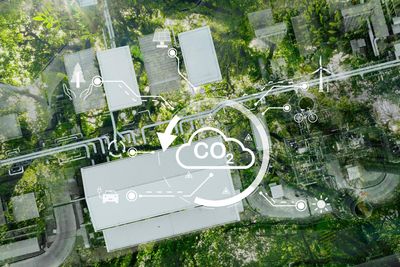Two Houston companies have received federal funding to develop carbon capture and storage projects.
Evergreen Sequestration Hub LLC, a partnership of Houston-based Trace Carbon Solutions and Jacksonville, Mississippi-based Molpus Woodlands Group, got more than $27.8 million from the U.S. Department of Energy for its Evergreen Sequestration Hub project in Louisiana. DOE says the project is valued at $34.8 million.
The hub will be built on about 20,000 acres of timberland in Louisiana’s Calcasieu and Beauregard parishes for an unidentified customer. It’ll be capable of storing about 250 million metric tons of carbon dioxide.
Trace Carbon Solutions, a subsidiary of Trace Midstream Partners, is developing CCS assets and supporting midstream infrastructure across North America. Molpus, an investment advisory firm, buys, manages, and sells timberland as an investment vehicle for pension funds, college endowments, foundations, insurance companies, and high-net-worth investors.
Another Houston company, RPS Expansion LLC, has received $9 million from the DOE to expand the River Parish Sequestration Project. Following the expansion, the project will be able to store up to 384 million metric tons of carbon dioxide. The CCUS hub is between Baton Rouge and New Orleans.
DOE says the River Parish expansion is valued at $11.8 million.
Also receiving DOE funding is a CCUS project to be developed off the coast of Corpus Christi. The developer is the Southern States Energy Board, based in Peachtree Corners, Georgia.
DOE is chipping in more than $51.1 million for the nearly $64 million hub. It’s estimated that about 35 million metric tons of carbon dioxide emissions are released each year from about 50 industrial and power facilities within a 100-mile radius of Mustang Island. Port Aransas is located on the 18-mile-long island.
In all, DOE recently allocated $518 million to 23 CCUS projects in the U.S.
“The funding … will help ensure that carbon storage projects — crucial to slashing harmful carbon pollution — are designed, built, and operated safely and responsibly across all phases of development to deliver healthier communities as well as high-quality American jobs,” Brad Crabtree, assistant DOE secretary for fossil energy and carbon management, says in a news release.
